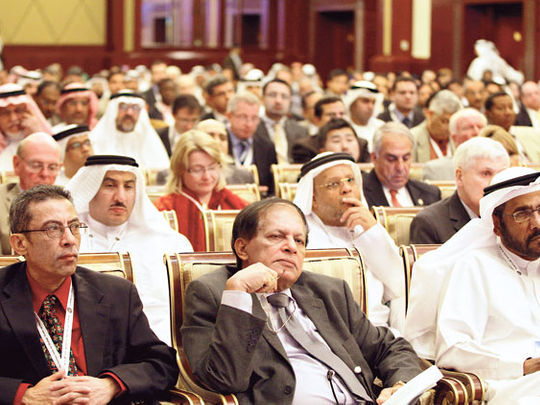
Abu Dhabi: Dependence on expatriates and lack of empowerment among women who make up more than 50 per cent of the GCC population are just some of the human development challenges that need to be tackled across the region, speakers at the ECSSR conference have said.
During his speech in Wednesday's concluding panel at the ECSSR 16th conference on prospects of human development in the Gulf region, Dr Abel Abdul Latif, head of the Arab programmes at the UNDP, spoke about human development restrictions in the GCC, which if not tackled may affect the area's economy.
One of the major handicaps, he cited, includes employment inequality among women in comparison to men.
"There are currently more female university graduates in the GCC than males, and countries should opt to offer equal opportunities in the labour market. In Saudi Arabia last year, there were 123,000 university graduates out of which 70,000 were females," he said.
Cost effective
Speaking to Gulf News, Dr Abdul Latif explained that companies in the private sector still prefer to recruit expatriate males than recruiting local females. "That is because expatriate males cost less and easier to lay-off, and that's a general trend internationally. That's why I believe the GCC should focus on reforming their current labour law, giving far more rights to women."
"The general attitude towards employing women should change. Countries need to come up with schemes to empower women in various sectors, and with incentives that ensure each sector employs an equal number of women to men," said the UNDP expert.
The region's future demography also stands out as a threat. "The population in the GCC has quadrupled since the 1970s. The GCC currently has about 41 million inhabitants, but that number is expected to reach 67 million by 2050, which will require keeping up with reforms with more emphasis on human development, improved education, health care and overall standard of living."
Another problematic area in the GCC worth looking into, added Dr Abdul Latif, is the over-dependence on the expatriate labour force. "What will countries do once expatriates decide to return to their homes? This factor is expected to impact the economy negatively if not properly managed."
Despite the huge leap in education in terms of student enrolment across schools and universities, Dr Abdul Latif expressed his concern over the quality of education.
Dr John Duke Anthony, president and chief executive officer, National Council on US-Arab relations, gave a list of grievances that currently exist among inhabitants in the GCC.
"An unprecedented number of nationals allege that they hardly have an economic and political say in their government's affairs. Facilitating movement and work opportunities in neighbouring countries is also resulting in less freedom of choice to move around," said Dr Anthony.
Growing numbers
- By 2050, the number of people in GCC is expected to reach 67 million, and the number across the Arab world will hit 600 million
- GCC region (current figures and facts) - 2011
- 2.4m sq km, 38 million inhabitants, GDP $898 billion












